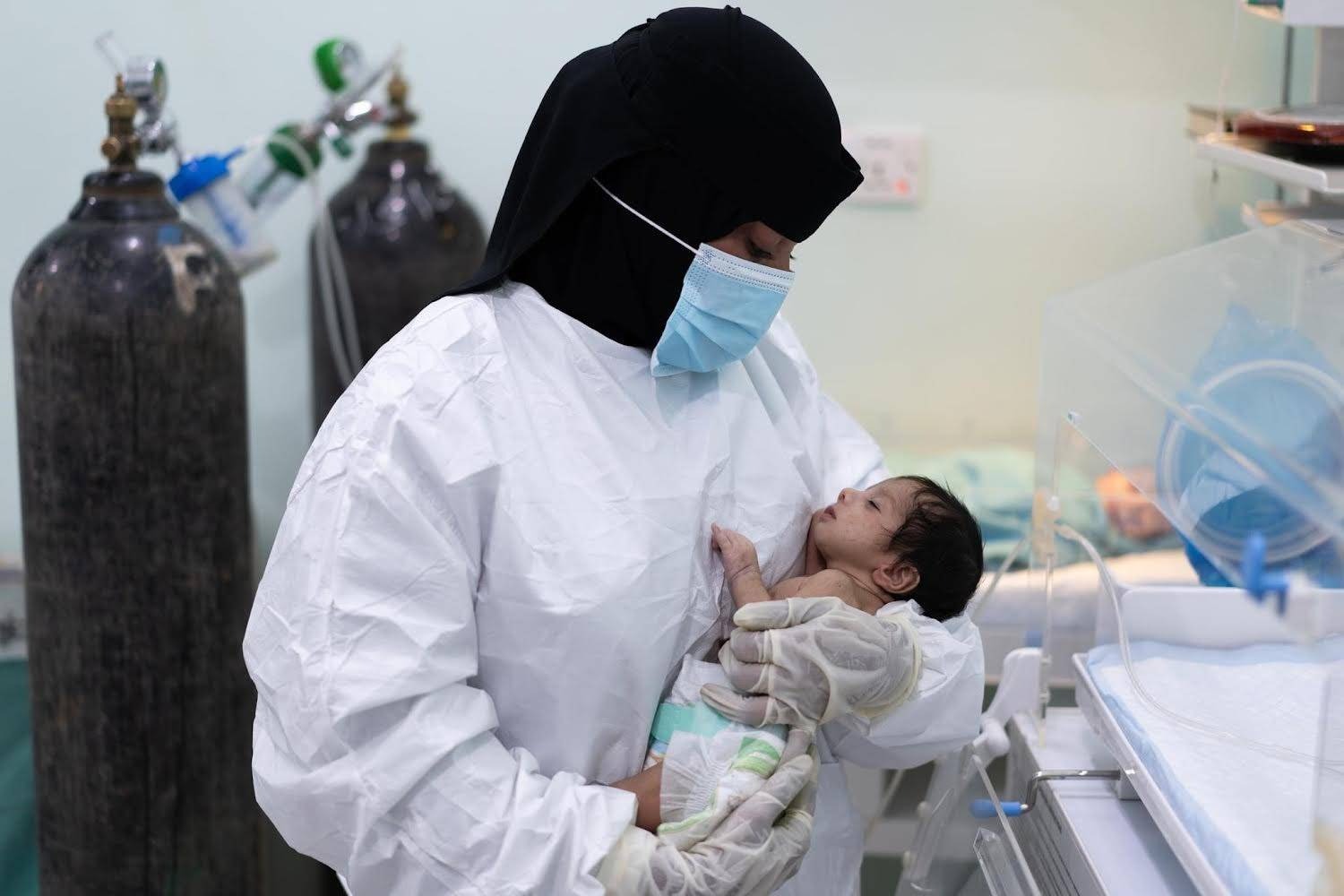


Barran Press
The World Health Organization (WHO) issued a stark warning on Wednesday, August 7, 2024, highlighting the dire state of healthcare in Yemen. According to the organization, an alarming 62,000 children under the age of five die each year due to deteriorating health services. Furthermore, 70% of pregnant and breastfeeding mothers suffer from anemia.
The WHO's assessment, based on a joint strategy with the Yemeni government, estimates that approximately one million Yemenis contract malaria annually, and the average lifespan has dropped from 66 to 64 years. The maternal mortality rate is also alarmingly high, with an estimated 183 deaths per 100,000 live births for the years 2024-2025.
Data from the latest health and demographic survey conducted in 2013 reveals that over 70% of pregnant and breastfeeding women suffer from anemia, a situation that has not improved since then.
The joint Yemeni-international strategy points to a rising trend in under-five mortality in recent years. In 2021, the rate reached 62 deaths per 1,000 live births. While there was a slight improvement between 2021 and October 2023, with the rate dropping to 41 per 1,000 live births, the mortality rate for boys (45 per 1,000) remains higher than for girls (35 per 1,000).
The strategy also highlights a marginal decrease in neonatal mortality, from 22 to 21 per 1,000, and a decline in infant mortality, from 39 to 35 per 1,000.
The WHO emphasizes the detrimental impact of climate change-related events, such as floods, sandstorms, extreme heat, and storms, on the health of the population, particularly vulnerable groups like the elderly.
Despite the grim outlook, the strategy suggests that Yemen could achieve significant gains in renewable growth and poverty reduction by 2030. However, the ongoing conflict, lasting over nine years, has severely hampered the Ministry of Public Health and Population's ability to focus on strengthening the healthcare system, which is crucial for providing affordable and high-quality healthcare services.
The WHO criticizes the lack of a comprehensive health system approach, attributing it to limited expertise in health leadership and governance, a shortage of public health and health management experience, and inadequate capacity, including insufficient human resources.
These factors have significantly hindered the ministry's ability to effectively fulfill its core functions, resulting in operational inefficiencies. The WHO advocates for bolstering the ministry's leadership capabilities and investing in effective governance and strong leadership to ensure efficient and equitable healthcare delivery.
The report also expresses concern about malnutrition, stating that nearly half of Yemeni children under five suffer from stunted growth, and over two million children face acute malnutrition, increasing their risk of death.
The conflict has contributed to a mental health crisis in the country, with an estimated eight million people requiring medical intervention for mental health disorders. Yemen is also highly susceptible to outbreaks and vulnerabilities.
The WHO warns of a simultaneous outbreak of vaccine-preventable diseases, including circulating vaccine-derived poliovirus type 2, cholera, measles, diphtheria, pertussis, malaria, and dengue fever.
Vaccination coverage remains low, particularly in areas controlled by the Houthis, where anti-vaccine sentiment fueled by political motivations is on the rise.